
Kidney disease in dogs is a common health issue that affects many dogs of all breeds and sizes. It is a chronic condition that can lead to serious health problems if left untreated. The kidneys are responsible for filtering waste products from the blood and regulating the body’s fluid balance. When the kidneys are not functioning properly, toxins can build up in the body, which can cause a wide range of symptoms.
Understanding canine kidney disease is important for every dog owner. Many factors can contribute to the development of kidney disease in dogs, including genetics, age, and diet. It is essential to recognize the signs and symptoms of kidney disease in dogs so that you can seek treatment as soon as possible. Treatment options for dogs with kidney disease can vary depending on the severity of the condition, but many things can be done to manage the symptoms and improve your dog’s quality of life.
Understanding Canine Kidney Disease
Kidney disease in dogs, also known as renal failure, occurs when the kidneys are no longer able to filter waste products from the blood. This can lead to a buildup of toxins in the body, which can cause a range of health problems.
Causes of Kidney Disease in Dogs
There are several causes of kidney disease in dogs, including:
- Age: As dogs age, their kidneys may become less efficient at filtering waste products.
- Genetics: Certain breeds of dogs, such as the Cocker Spaniel, are more prone to kidney disease.
- Infections: Bacterial infections, such as leptospirosis, can damage the kidneys.
- Medications: Some medications, such as non-steroidal anti-inflammatory drugs (NSAIDs), can cause kidney damage.
- Toxins: Exposure to certain toxins, such as antifreeze, can cause kidney damage.
Symptoms of Canine Kidney Disease
Symptoms of kidney disease in dogs can vary depending on the severity of the condition. Some common symptoms include:
- Increased thirst and urination
- Loss of appetite and weight loss
- Vomiting and diarrhea
- Lethargy and weakness
- Bad breath and oral ulcers
Types of Kidney Disease in Dogs
There are two main types of kidney disease in dogs: Acute kidney disease is usually caused by a sudden injury or illness, such as a bacterial infection or toxin exposure. Chronic kidney disease, on the other hand, develops gradually over time and is often caused by aging or genetic factors.
Diagnosing Kidney Disease in Dogs
Diagnosing kidney disease in dogs requires a thorough examination by a veterinarian. The vet will take a complete history of the dog’s health and perform a physical examination. They may also recommend diagnostic tests to determine the extent of kidney damage and the underlying cause of the disease.
Diagnostic Tests
Some of the common diagnostic tests for kidney disease in dogs include:
- Blood Tests: Blood tests can help determine the levels of waste products and electrolytes in the blood. Elevated levels of creatinine and blood urea nitrogen (BUN) are indicative of kidney disease.
- Urinalysis: Urinalysis is used to determine the concentration of urine and the presence of protein and blood in the urine. A low urine specific gravity (USpG) and proteinuria are early indications of kidney failure.
- Imaging Tests: Imaging tests such as X-rays, ultrasound, and CT scans can help determine the size and shape of the kidneys and identify any abnormalities.
- Biopsy: A kidney biopsy involves taking a small sample of kidney tissue to examine under a microscope. This test is usually performed under general anesthesia.
Early Detection
Early detection of kidney disease in dogs is crucial for effective treatment. Dogs that are at risk of developing kidney disease, such as those with a history of urinary tract infections, should be monitored closely and undergo regular check-ups.
Symptoms of kidney disease in dogs can be subtle and may not appear until the disease has progressed. Some of the common symptoms include increased thirst and urination, loss of appetite, weight loss, vomiting, and lethargy.
What to Feed a Dog with Kidney Failure Who Will Not Eat
Dogs with kidney failure may experience a loss of appetite, making it difficult to provide them with the necessary nutrients. However, it is important to ensure that they are still getting the nutrients they need to maintain their health. Here are some tips on what to feed a dog with kidney failure who will not eat:
1. Low-Phosphorus Diet
According to the National Research Council (NRC), dogs with kidney disease should not consume more than 22.25mg of phosphorus per day. Therefore, it is important to feed a low-phosphorus diet to dogs with kidney failure. This means avoiding foods that are high in phosphorus such as dairy products, organ meats, and certain types of fish. Instead, opt for lean protein sources such as chicken or turkey breast, or defatted beef.
2. High-Quality Protein
Although protein restriction is often recommended for dogs with kidney failure, it is important to ensure that they are still getting enough high-quality protein. The protein that is fed must be a high-quality protein with high bioavailability. This means that the protein should be easily digestible and provide all the necessary amino acids. High-quality protein sources include lean meats, eggs, and dairy products.
3. Low-Sodium Diet
Dogs with kidney failure should also be fed a low-sodium diet. Sodium is usually found in salt and should be limited to less than 1mg per calorie. High levels of sodium can lead to high blood pressure and worsen kidney function.
4. Moisture-Rich Foods
Dogs with kidney failure may also benefit from moisture-rich foods such as canned food or homemade diets. These foods can help maintain hydration and prevent dehydration, which is common in dogs with kidney failure.
5. Nutritional Supplements
In some cases, dogs with kidney failure may require nutritional supplements to ensure that they are getting all the necessary nutrients. These supplements may include vitamins, minerals, and omega-3 fatty acids. It is important to consult with a veterinarian before adding any supplements to your dog’s diet.
Homemade Dog Food with Kidney Disease

When a dog is diagnosed with kidney disease, it is important to adjust its diet to manage the condition. Homemade dog food can be an excellent option for dogs with kidney disease, as it allows for more control over the ingredients and nutrient content.
One popular homemade dog food recipe for dogs with kidney disease includes boiled chicken, rice, and vegetables. The recipe can be adjusted based on the size and weight of the dog.
It is important to note that the recipe should be discussed with a veterinarian to ensure it meets the specific needs of the dog. The recipe should also be adjusted based on the dog’s dietary restrictions and preferences.
In addition to chicken, rice, and vegetables, other protein sources such as turkey or beef can be used. Low-phosphorus vegetables such as green beans, carrots, and peas are also recommended for dogs with kidney disease. It is important to avoid high-phosphorus vegetables such as spinach and beets.
Supplements such as omega-3 fatty acids and B vitamins can also be added to homemade dog food for dogs with kidney disease to support their overall health. However, it is important to consult with a veterinarian before adding any supplements to the dog’s diet.
Suggested Products and Supplements
When making homemade dog food for dogs with kidney disease, it is important to choose high-quality ingredients and supplements. Here are some suggested products and supplements:
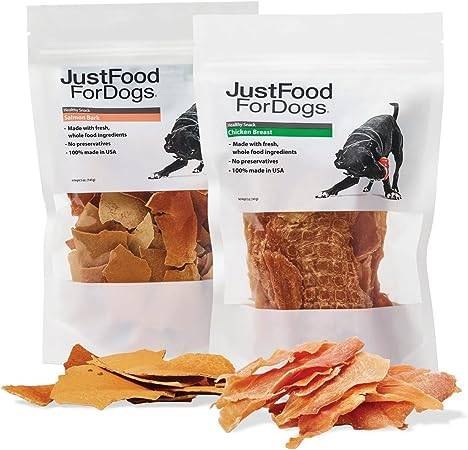
Organic Chicken Breast
Chicken: Organic Chicken Breast is a high-quality protein source that can be used in homemade dog food for dogs with kidney disease.
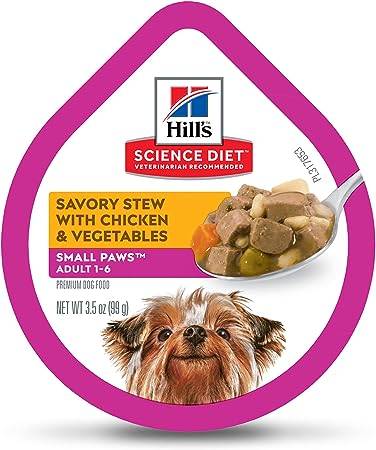
Hill’s Prescription Diet K/D Vegetable & Tuna Stew Canned Dog Food
Vegetables: Hill’s Prescription Diet K/D Vegetable & Tuna Stew Canned Dog Food is a low-phosphorus dog food that includes green beans, carrots, and peas, making it a great option for dogs with kidney disease.
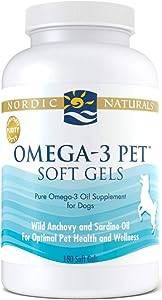
Nordic Naturals Omega-3 Pet Soft Gels
Omega-3 Fatty Acids: Nordic Naturals Omega-3 Pet Soft Gels are a high-quality supplement that can be added to homemade dog food to support kidney function and reduce inflammation.
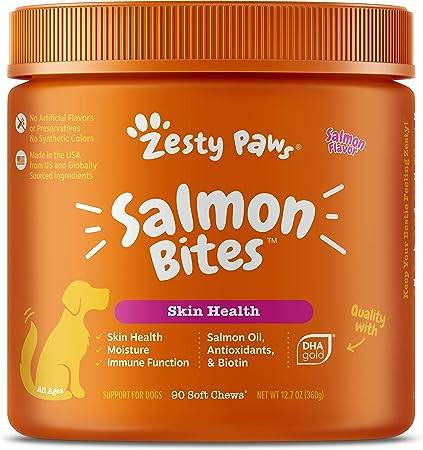
Zesty Paws Bites Skin & Coat Support Salmon Flavor Soft Chews
B Vitamins: Zesty Paws Bites Skin & Coat Support Salmon Flavor Soft Chews are a great-tasting supplement that can be added to homemade dog food to support the immune system and overall health.
Preventing Kidney Disease in Dogs
To prevent kidney disease in dogs, focus on a healthy lifestyle:
- Ensure Proper Nutrition: Feed a balanced, low-phosphorus diet. Seek advice from a vet.
- Encourage Hydration: Provide fresh water and add low-sodium broth to the bowl.
- Promote Exercise: Keep your dog at a healthy weight through regular exercise.
- Schedule Check-Ups: Regular vet visits detect kidney issues early.
- Avoid Toxins: Protect your dog from harmful substances like antifreeze and pesticides. While these steps reduce the risk, some dogs may still develop kidney disease. If concerned, consult a vet for diagnosis and treatment.
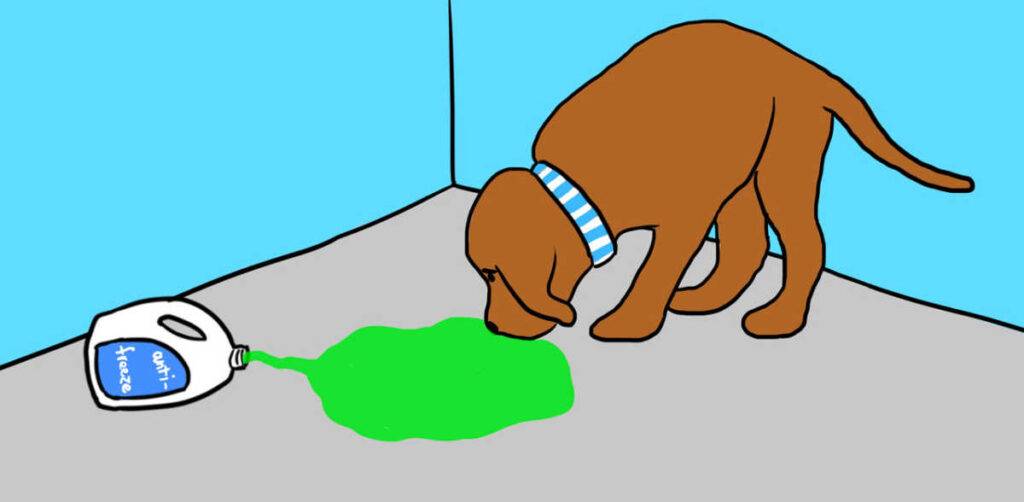

Life Expectancy and Prognosis
The life expectancy of a dog with kidney disease depends on its severity and response to treatment. Small-breed dogs tend to live longer than large-breed dogs and show signs of kidney disease later in life (around 10 years or older for small breeds, compared to 7 years for large breeds).
The prognosis for acute kidney failure varies based on the cause, treatment speed, and the dog’s response. Chronic kidney disease, common in older dogs, has a challenging prognosis due to its slow onset and difficulty in early diagnosis.
The International Renal Interest Society (IRIS) has created guidelines for staging chronic kidney disease based on blood creatinine levels. Prognosis improves for dogs diagnosed in early stages (1 or 2) compared to later stages (3 or 4).
Treatment plans, including medication and dietary changes, are crucial in managing kidney disease. Working with a veterinarian to tailor the treatment to the dog’s specific needs is essential for improving the prognosis. IRIS continues to research new treatments to enhance outcomes for dogs with kidney disease.

[…] What is Kidney Disease in Dogs? […]
[…] with kidney failure may also benefit from moisture-rich foods such as canned food or homemade diets. These foods can help maintain hydration and prevent dehydration, which is common in dogs with […]
[…] addition to the risks mentioned above, it’s important to be aware of kidney disease in dogs, which can also be a potential concern when sharing your bed with your furry […]